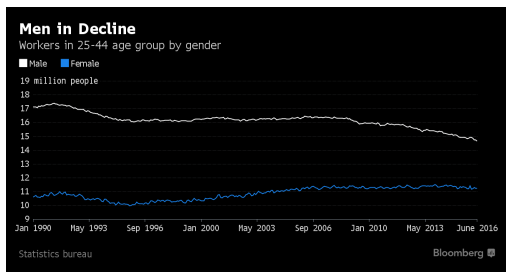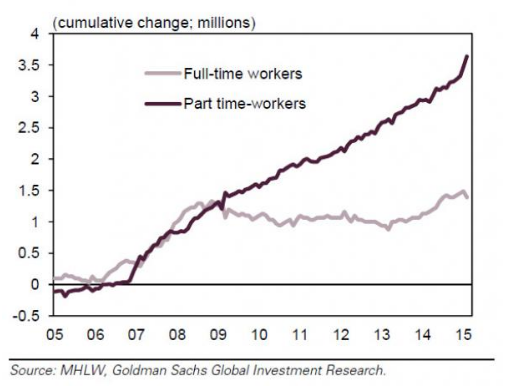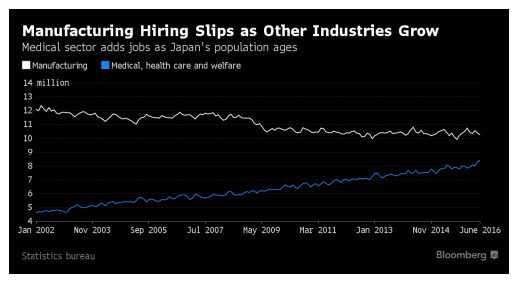Key Points:
- Structural unemployment remains pervasive.
- Manufacturing hiring continues to contract.
- Japanese retail spending and wage growth to remain stagnant.
Japan’s unemployment rate has been a relatively bright spot on what would otherwise be a bleak picture for the wide economy. Surprisingly, despite a lack of consumer confidence and collapsing inflation, the unemployment rate has continued to decline and actually reached a 20 year historic low of 3.00% in July.
Subsequently, classical economists would then argue that the tightening of the labour market would suggest that inflation and improved conditions are on their way…but are they really?
The reality is that the historically low unemployment rate has exposed some of the deeper structural problems within Japan's economy that is likely to forestall any march towards growth or momentum.
Although unemployment has declined sharply over the past few months, most of the job gains have been filled by women in largely part time roles. In fact, males between the ages of 25-44 dominate the ranks of the unemployed and the numbers of male workers (25-44) within the work force has fallen to its lowest point in over 48 years.

However, female employees have largely not benefitted from the increased demand for their services given that the latest statistics show that most of these gains have been within relatively poorly paid part time roles. Subsequently, there is little wage inflation or per-capita wage growth to speak of.
Obviously, the fall in current and expected income hits an economy right where it hurts via its consumption channel and this is largely reflected in the poorly performing consumer confidence figures.

It is therefore relatively intuitive that we are unlikely to see a pick up anytime soon in domestic demand or consumption until per-capita wages experience some growth within the embattled Asian economy.
Subsequently, the Japanese Average Cash Earnings figures, which are due out next week, are likely to provide little in the way of hope given their long term trend lower.
Unfortunately, what the Japanese economy is currently experiencing is largely structural in nature as activity moves away from manufacturing and into service based industries. This shift largely explains the redeployment issues within the male workforce as they struggle to deal with retraining and skill set differences that are now largely in demand.

This growing drag on economic potential is likely to persist for some time given the male cultural resistance to change and poses both social and economic problems for the country.
Making the problem worse is the rapidly shrinking number of manufacturing roles available to the jobless and an abject lack of any government policy in addressing the labour mismatch. Subsequently, for the long term unemployed there is little in the way of options.
The problems of unaddressed structural unemployment therefore pose a rapidly growing threat to the effectiveness of any additional monetary or fiscal stimulus.
The reality is that consumer expectations are largely developed around current and future income expectations and until the central bank (or government) addresses some of these underlying issues we are unlikely to see a pickup in domestic consumption any time soon.
